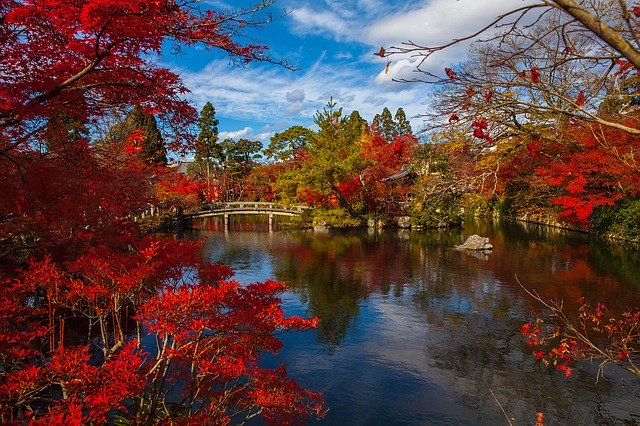【フレーズ】I'm pressed for time.
《アイムプゥレス(トゥ)フォアタイム》
【意味】時間が足りない
【ニュアンス解説】
昨日は press という動詞を使ったフレーズでしたが、今日は pressed と形容詞を使ったフレーズです。 pressed for time で「時間が足りない」「時間に追われて」といった意味になります。
【例文】
1. レポートの期限
A. When is your report due?
<レポートの提出期限はいつなの?>
B. Tomorrow at ten o'clock. I'm pressed for time.
<明日の10時。時間が足りないよ。>
A. Is there anything I can do to help?
<何か私で手伝えることはある?>
2. レストラン
A. I really wanted to try their dessert.
<デザートもすごく食べたかったんだけどね。>
B. Why didn't you?
<どうして食べなかったの?>
A. We were kind of pressed for time that night.
<あの夜はあまり時間がなかったの。>
この機会に press が持つ「押す」以外の意味やニュアンスを覚えて、ぜひ会話に役立ててみてください。
Johnson の 英語でニッポン案内
from Johnson
You can say that again!
本当にそうだよね!
朝晩日毎に冷え込むようになりましたね。紅葉の名所といわれるところには行かれましたでしょうか。
毎年、多くの外国人観光客を見かけます。紅葉を美しいと感じる心は万国共通だと思いますが、日本人特有の美意識「侘び寂び」を、外国人に伝えることは出来るのでしょうか。
I can’t understand the meaning of Wabisabi!
詫び寂びの意味が分からない!
A: We’re lucky to be in Japan when the leaves change colors.
B: Yeah, Ginkaku-ji is even more beautiful than before.
A: I heard this is what Japanese people call wabi-sabi.
B: Because of the simplicity?
A: Not just that. You can also feel the faded beauty from Ginkaku-ji's moss.
B: It’s very difficult to understand...
A: You can say that again! For Japanese people there is unique beauty in simple and old things.
B: So, to be more wabisabi, should we cancel our shopping trip after this?
A: Of course not! I want more clothes!
A: 紅葉の季節に、日本に来てよかったね。
B: そうだね!銀閣寺は前に来た時より、もっと綺麗だ。
A: 日本人はこれを侘び寂びと呼んでいるらしい。
B: 質素だから?
A: それだけじゃない。銀閣寺の苔からも寂れた美しさが感じられるよね。
B: 理解するのが難しい…
A: 本当にそうだよね!日本人には、質素なものや古いものに対する独特の美意識があるんだ。
B: じゃあ、もっと侘び寂びになるために、今からのショッピングを止めておくべき?
A: それは違うよ、僕は服がもっと欲しい!
ポイント
You can say that again!
本当にそうだよね!
「まったくその通りだ」という意味合いで使います。相手の言うことに心から賛成する時に使いますが、少しくだけたニュアンスです。直訳をすると「また言えるね」になりますが、使う時の意味はそうではありません。
Johnson のひとこと!
Honestly, I'm not sure if I heard of wabisabi before this month. I'm also not sure I fully understand it either.
But in trying to research it, I can see many different examples of wabisabi in Japanese culture. From temples to old schools, I can get a sense of wabisabi.
Some people believe wabisabi will become the next big thing in Western culture, like feng-shui, but I think westerners (and many Japanese people) love material goods too much to be truly wabisabi.
正直なところ、今までに侘び寂びという言葉を聞いたことあったかどうか確信がありません。ちゃんと意味を理解しているかどうかも分かりません。
でも詫び寂びについて調べてみると、日本の文化の中に侘び寂びをたくさん見る事が出来ます。お寺や古い学校にも侘び寂びを感じます。
風水みたいに、侘び寂びという文化が西洋に広がると言われているけど、現代の西洋人(多くの日本人も)は物欲が強くて、本当の侘び寂びには程遠いと思います。
Johnson Reid
最新記事 by Johnson Reid (全て見る)
- 【3700】We grew apart.:私達は疎遠になってしまった - 2020年12月31日
- 【3694】This is exactly what I wanted.:ちょうどこれが欲しかったんだ - 2020年12月25日
- 【3674】keep things in order:身の回りを整頓する - 2020年12月5日













